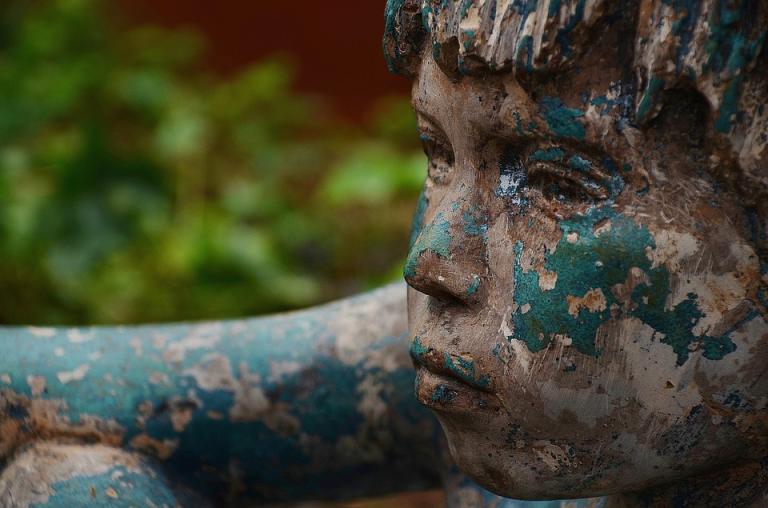
By Timothy Askew; reprinted from Inc. with the kind permission of Timothy Askew.
Mahatma Gandhi said, “The weak can never forgive. Forgiveness is the attribute of the strong.” (He also said, “An eye for an eye only ends up making the whole world blind.”)
Anger. Revenge. Forgiveness. Hmm. Brings together thoughts about my ex-wife, my ex-business partner, my father, my insurance company, and the guy in the BMW who cut me off on the freeway this morning.
Last week my friend Kris Slava sent me a link to a 2013 TED Talk in Amsterdam given by Manfred Kets de Vries on forgiveness, based on his paper, The Art of Forgiveness: Differentiating Transformational Leaders. It’s worth taking a look at, if you get a chance.
Kets de Vries says, “Truly transformational leaders are acutely aware of the cost of animosity.” He sees executive anger and holding of grudges as kinds of arrested development and narcissism that are damaging to leaders themselves and to their companies. These sorts of leaders create atmospheres which are closer to gulags than to healthy, vital business communities. A company with an unforgiving culture creates paranoia and fear of making mistakes. And people who don’t make mistakes often don’t do anything. They become too busy covering their asses to truly try anything.
To illustrate his point, Kets de Vries contrasts the results of two very opposite leadership approaches to forgiveness in Africa. He says, “When you fly over Zimbabwe you see a wasteland. When you fly over South Africa you see something different. Two leaders with very different attitudes towards forgiveness. If I ask my class which political leader do you most admire, 95% say Nelson Mandela. When you ask why, the answer is forgiveness.”
He notes that after 27 years in prison in apartheid South Africa, Mandela forgave his oppressors and encouraged his followers, who were screaming for revenge, to do likewise, telling them, “Forgiveness liberates the soul, it removes fear. That’s why it is such a powerful weapon.” South Africa is now a lush and successful country
In contrast, Kets de Vries offers the example of Robert Mugabe of Zimbabwe, who opted for bitterness, vindictiveness and hatred against white Zimbabweans and anyone who opposed him. By encouraging supporters to forcibly occupy white-owned commercial farms, Zimbabwe, once the bread basket of Africa, became poverty stricken. Unemployment rose to between 70-80% and life expectancy fell. Zimbabwe’s currency became worthless.
For command-and-control, “tough” leaders forgiveness ain’t easy. Traditionally, this type leader does not apologize and does not forgive. Yet lots of research has pretty much proved that bitterness and focus on getting even causes stress disorders, damages the immune system and is associated with depression, anxiety, and a shorter life.
Anger triggers fight or flight reactions. Adrenaline and noradrenaline surges through the body and the amygdala goes nuts. An unforgiving leader will spread this emotional poison and fear institutionally. She will create a corporate and emotional wasteland. A corporate Zimbabwe.
Anger, vengeance, and blame are simply unproductive and impractical emotions for corporate leaders to act on. Leaders need to forgive, not because it is the “nice” and “good” thing to do, but because it is objectively the selfish thing to do. It creates a forgiveness culture that is practical and efficacious. Which do you prefer: the results of South Africa or the results of Zimbabwe?
Rosebeth Moss Kanter of the Harvard Business School says the following: “One of the most courageous acts of leadership is to forego the temptation to take revenge on those on the other side of an issue or those who opposed the leader’s rise to power. Instead of settling scores, great leaders make gestures of reconciliation that heal wounds and get on with business.”
The more I learn about anger, the more I believe forgiveness is a crucial business skill. We create diminished, dystopian companies to the extent we nurture and hold on to grievances. So the price for holding a grudge is high.
Manfred Kets de Vries notes that we cannot change what has already happened, that there is no delete button for the past. So a leader only has the choice of how to react to perceived transgressions and how to effectively metabolize those feelings in setting the most effective tone for herself personally and thusly for her whole company.
As Mufasa says to his son Simba in the Walt Disney film The Lion King, “Think of forgiveness as giving up all hope for a better past.”
Jodi Picoult, in her novel Nineteen Minutes, puts it this way: “When you begin a journey of revenge, start by digging two graves: one for your enemy, and one for yourself.” Thanks, Jodi.
Image: Pixabay.
 Tim Askew is the owner of sales firm Corporate Rain International and a member of the Inc. Business Owners Council. He has several advanced degrees, and has been a tennis pro, actor, opera singer, Broadway producer, dishwasher, bartender, minister, and college assistant dean. Askew is the author of the new book The Poetry of Small Business (available on Amazon). @TimothyAskew
Tim Askew is the owner of sales firm Corporate Rain International and a member of the Inc. Business Owners Council. He has several advanced degrees, and has been a tennis pro, actor, opera singer, Broadway producer, dishwasher, bartender, minister, and college assistant dean. Askew is the author of the new book The Poetry of Small Business (available on Amazon). @TimothyAskew












